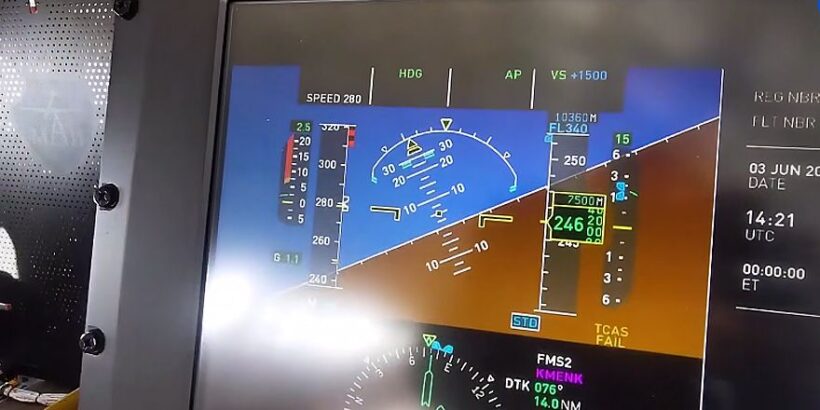On June 2nd and 3rd, at the Zhukovsky airfield of the Gromov Flight Research Institute (LII), the SJ-100 prototype aircraft (registration number 97021, serial number 97001), featuring partial replacement of avionics with domestically produced equipment, initiated certification flight tests of its Automatic Flight Control System (AFCS). This announcement was made by the press service of the United Aircraft Corporation (UAC).
The core AFCS algorithm development was a collaborative effort between specialists at Yakovlev Public Joint Stock Company (PJSC Yakovlev) and the Moscow Institute of Electromechanics and Automation (MIEA). The system provides flight director guidance during takeoff and fully automated flight control for all other flight phases. The algorithms for CAT IIIA ICAO category landings enable automatic control during flare and touchdown, as well as precise tracking of the aircraft’s movement along the runway centerline.
During semi-automatic control, the AFCS generates a deviation signal from the specified trajectory, displayed on a multi-function display (MFD). This assists the pilot in maintaining a stabilized attitude in pitch, roll, and yaw. The system previously underwent and passed preliminary testing on the “Electronic Bird” integration test bench at the State Research Institute of Aviation Systems (GosNIIAS).
“The new AFCS is the result of the collaborative work of specialists from Yakovlev and enterprises within the Concern Radio-Electronic Technologies (KRET),” UAC stated.
During the initial two flights, the flight crew tested the primary autopilot modes. Specifically, they evaluated level flight, altitude capture, vertical speed for climb and descent, flight path angle during climb and descent, and turns to a designated heading. Tests also included combinations of these modes, including a scenario simulating a single engine failure. The flight duration on June 2nd was 2 hours and 19 minutes, and on June 3rd, it was 1 hour and 53 minutes.
The results indicated that the AFCS functioned satisfactorily in all tested modes, combinations, and transitions between them. Further validation will confirm the system’s compliance with the safety and reliability requirements necessary for the SJ-100 aircraft’s operation.



 (4 votes, average: 3.75 out of 5)
(4 votes, average: 3.75 out of 5)